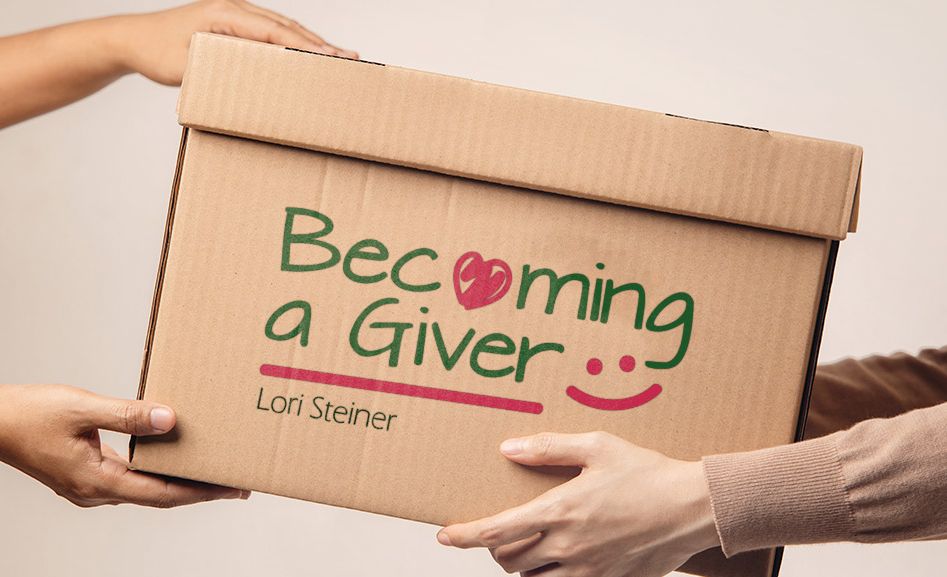
Polite to Death
Western etiquette creates a very strange situation where you can hate a person’s guts, but as long as you don’t actually tell them that directly to their face, it’s all OK...

Recently, I was listening to a shiur (Torah class) by Rav Erez Moshe Doron. Rabbi Doron moved to my village, and most Shabbat afternoons, he gives a class on Likutei Moharan.
That particular week, he was talking about the need for us to be real in our relationships with other people, particularly family members. It’s not enough just to nod politely and ask how the other person is doing. We have to get down – or come up – to their level, and make an effort to really and truly relate to them.
Sounds easy, doesn’t it? Well, it’s not. And if you’re from the UK, then it’s really, really not, because in the UK, ‘polite’ is the most important trait there is. People are oh-so-polite to each other – when they are speaking to the person. But behind their back? Under the surface? By the water-cooler? Oy va voy, the amount of slander, gossip, and back-stabbing taking place is tremendous.
 All this creates a very strange situation where you can hate a person’s guts, but as long as you don’t actually tell them that directly to their face, it’s all A-OK. Tell their friend. Tell your friend. Tell anyone else you like, but when you’re talking to the person themselves, politeness is the order of the day.
All this creates a very strange situation where you can hate a person’s guts, but as long as you don’t actually tell them that directly to their face, it’s all A-OK. Tell their friend. Tell your friend. Tell anyone else you like, but when you’re talking to the person themselves, politeness is the order of the day.
Of course, this is the exact opposite of what a Jew should do. The ideal state is not to hate anyone’s guts in the first place, as that would be a manifestation of a complete lack of emuna, or belief that G-d is running the world and is orchestrating every little detail of our lives, including all the annoying, hateful, rude people.
But most people aren’t on that level. Most people, at least occasionally, get irritated or upset or annoyed or hurt by someone else. And when they do, the best course of action to take is to air the grievance out with the person themselves, and deal direct.
When you talk about ‘real’ things with people, things that actually matter, more often than not, it can be quite a rough ride. Because when people really care about something, they are passionate about it. You can only be ‘polite’ and not ‘rock the boat’ when really, you don’t give two hoots about the thing, or person under discussion.
As time goes on, G-d is showing me more and more ‘politically correct’ traits in Western society that are completely antithetical to Torah. But it’s hard to catch them, or to believe they are really that bad, because so many of us have been brainwashed to not ‘rock the boat’ and to pretend that we are ‘all the same’, and to ‘not judge anyone’s behavior’ that it’s excruciatingly difficult to internalize that most of the time, this is the exact opposite of what we, as Jews, are meant to be doing.
No wonder so many of us tip-toe round bad behavior and falsehood and evil, and make excuses for it all the time.
OK, yes, G-d did tell us that we are meant to get married and have children – it’s the first mitzvah in the Torah, after all – but what’s so bad with being physically intimate with people you aren’t married to (and have no intention of ever marrying…)?
OK, yes, G-d did give us a whole big Torah, with 613 commandments (if you’re Jewish) and 7 Noahide commandments (if you’re not). But come on, what’s so bad about not keeping your word? Or not paying people money you owe them? Or losing your temper at your four year old for the fifth time today, because they keep interrupting the post you are trying to put up on your Facebook page? What’s so bad?
What’s so bad about people wasting hours, days, weeks, months, and years of their lives passively watching dramatized versions of the three cardinal sins on their 72” inch TV screens?
What’s so bad about a husband who has nothing to say to his wife, when he gets home from work, other than to talk business or golf? What’s so bad about parents who only notice their children when they are telling them off, or want something from them? What’s so bad?!?!?
From a Jewish perspective, everything. Jews don’t believe in political correctness, which tells everyone ‘we are all the same, and we are all good people’. We aren’t. We are all individuals, with our own tailor-made Divine purpose and path in life.
Jews don’t believe that the absence of obvious ‘bad’ automatically makes someone a ‘good’ person. You want to be a ‘good’ person? Then you better do an awful lot of actively ‘good’ things for people (and for G-d…) to earn that title.
Otherwise, it’s just words. Empty words, with nothing ‘real’ to back it up. Western society loves all its empty words and big promises that can’t be delivered – I should know, I used to write articles for ministers in the British Government, and it was my job to make nothing much sound like something really wonderful.
But it’s not only politics and politicians who are infected by political correctness. Political correctness has also seeped so deeply into family life that most people today – most Jews today – put more value on how things ‘look’, or how things ‘sound’ than how they really ‘are’.
Western society encourages people to send cards and cute animated emails telling people ‘I love you’ all the time. But the proof is in a person’s actions. Anyone can say empty, meaningless words and then feel that they’ve ticked that box and are now officially a ‘good person’ who ‘loves’ someone else.
But that sort of ‘love’ is fake, phony nonsense.
Real love is when you put someone else’s welfare ahead of your own. Real love is when you give your child the space to tell you something you don’t want to hear (without having a go at them). Real love is when you encourage the people you love to pursue their own path towards truth, and G-d and personal fulfilment, even when it’s radically different from your own.
Otherwise, it may ‘sound’ good and ‘look’ good, but really, it isn’t.
And when you wake up one morning, and your spouse wants a divorce; or you wake up one morning and you realise you have no idea who your kid really is; or you wake up one morning and you realise that all the years you spent on your career, or on your garden, or on your running record were an exercise in futility – maybe, just maybe, you’ll have the courage to stop pretending at that point and to admit: ‘It was bad. It is broken. I did make a mistake. I am very far away from being a good person…”
And if you do, you may feel broken for a day, a week, a month – but it’s the beginning of fixing the problem. It’s the beginning of letting G-d into your life. And bad as it may look, at least temporarily, it’s the beginning of a ‘real’ life and real, lasting, genuine happiness.












Tell us what you think!
Thank you for your comment!
It will be published after approval by the Editor.